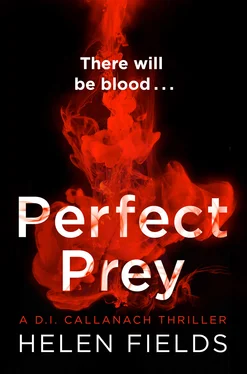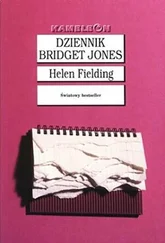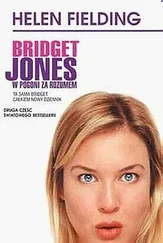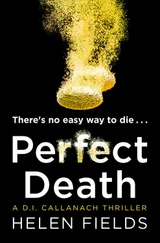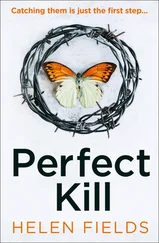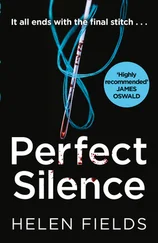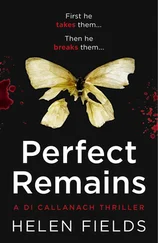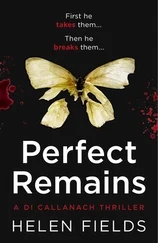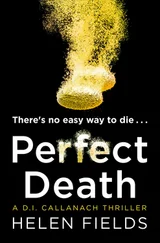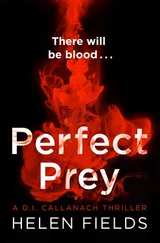Callanach grabbed the handle of the shower door, squeezing the metal as if he could crush it, growling aloud with the effort of trying to drag the life back into himself. But it had gone. That fleeting hope that he could be normal again.
‘ Merde !’ he shouted, smashing a fist into the shower glass, getting nothing in return except bruised knuckles and a dull thud. ‘ Je suis pathétique .’ He reverted to French as he always did when he lost control, although the message was the same in any language. He was pathetic. But his muscles had flared into life, if only for a second. It was proof, as if he’d needed it, that there was no physical damage. ‘Enough,’ he said, snatching a towel and throwing it over his shoulders.
As he walked through his bedroom, he paused to stare in the mirror. He was still in good shape, rarely going more than two days without punishing himself at the gym, naturally eating cleanly, always aghast at the piles of chips, pastry and white bread that seemed to flow through the doors of the station. He hated to feel bloated and heavy. His mother had lectured him about diet from before he could talk back. Fruit, vegetables and protein. Everything else was just excess. She’d long since stopped lecturing him. Had not communicated with him at all since his brief spell of incarceration before he’d been bailed pending trial. He got his olive skin from her, and his dark hair. No matter how long he lived in Scotland, his skin was never going to pale enough for him to pass as a native. It was as if his father’s Scottish genes had passed him by.
He ran a hand through his hair, pulling his shoulders back and inspecting his muscle tone as if he were buying a piece of meat. He’d let his head rule his body for too long, trying everything except therapy, save for those few embarrassing obligatory sessions with the Interpol psychologist before he’d served his notice.
Determined to move on, he opened his laptop and skipped through a variety of websites until he found one that looked vaguely professional, then he pulled his wallet from his jacket. In less than a minute he’d purchased a drug without prescription and left his credit card details online. It wasn’t clever but it wasn’t going to get him in serious trouble, even if he was caught. What worried him more, having finally made the choice to buy the drug that might offer him relief, was finding someone with whom he could use it.
Three weeks had passed since Sim Thorburn’s murder. Twenty-one days when each morning was marked by the increasing quietness and frustration of Callanach’s team. Today the atmosphere was different. Not in his incident room, but certainly across the hall. A body of men and women was massing at the station. The way they were dressed and the palpable excitement could mean only one thing. Callanach realised they were on a pre-raid briefing. DC Tripp caught his eye, and Callanach managed a nod in response before his purloined detective constable looked back at the whiteboard where DCI Edgar was pointing at the blueprint of a building and barking instructions. However much money the hackers had stolen, or ‘relocated’ as The Unsung had released a statement to explain, was enough to justify a huge public expenditure to ensure they were caught. Callanach wondered what the difference in governmental financing was between the hackers’ case and his investigation into Sim’s murder. Probably best not to know, he thought. That way lay only bitterness and disillusionment.
He had begun to accept that the trail to Sim’s killer had run from lukewarm to cold. It seemed more likely than ever that it was just some random attack, perhaps mistaken identity, perhaps someone Sim had crossed unknowingly. Since the funeral, his girlfriend had left Edinburgh and returned to her parents’ house in Newcastle, leaving only a forwarding address and a message to say how disappointed she was that there had been no progress. Callanach could sympathise.
Since then, he’d lost two more squad members to an attempted rape outside a nightclub, and even Begbie hadn’t asked for a progress report for a couple of days. Callanach watched as DCI Edgar’s team trotted out of the incident room and down the corridor like an army squadron given the go for a secret mission, albeit carrying warrants and laptops instead of guns. Tripp looked half-embarrassed, half-bored as he kept pace in the line towards the stairs.
‘Sir,’ Salter said, coming up behind him. ‘We’ve had this passed on from the uniformed team on duty. An elderly gentleman, missing all night. Wife is distraught. He’s never failed to come home before.’
‘The Major Investigations Team is doing missing persons now, is that right?’ Callanach sighed.
‘Seems likely to be more than that. His mobile and wallet have been found on a park bench on top of a pile of books. Name is Michael Swan. This morning he missed a community awards ceremony. He was due to be recognised for the child literacy programmes he’s set up across the city. Wife said he’d been looking forward to it for weeks.’
‘Sounds more like he’s had a breakdown and run away. Come on then, Salter. That’s if DCI Edgar has left any vehicles for the rest of us.’
They headed east across the city towards Craigentinny golf course. The expanse of greenery would have been visible from Michael Swan’s bedroom window, Callanach realised, as his wife described how her doting husband had always dreamed of retiring next to a golf course. Ironically, he’d then become so consumed with what began as a part-time librarian’s post that he’d barely picked up a club since.
‘Has he been unwell, or acting out of character at all, Mrs Swan?’ Salter asked, sipping the coffee that had appeared courtesy of an adult daughter who was comforting her mother.
‘No. My husband was a creature of habit. He came and went at certain times. Had clothes for work and clothes for the weekend. He always told me if something was bothering him. And I could tell, you know. It’s like that once you’ve been married long enough. But to leave his wallet and phone in a public place? He’d never be so careless.’ The daughter handed her mother more tissues from the box rapidly being used up and Callanach checked his watch. The library wasn’t normally open until later but the caretaker had agreed to meet them there and open up. If Michael Swan had left a note anywhere, it was likely to be on his desk.
At the library it was confirmed that Michael Swan had checked out with his swipe card at 8.37 p.m. the previous day. Salter immediately radioed through to the station for a CCTV check of the route he’d have taken to the point where his wallet and mobile had been abandoned. Callanach moved forward at the caretaker’s beckoning and looked through the documents left on a modern reception desk.
‘Is this where Mr Swan would have spent most of his time?’ Callanach asked.
‘Aye, here to check books in and out. The building is on two levels. Library down here, meeting rooms upstairs, used for educational programmes and whatnot. Sometimes authors come here to talk about their books. Other evenings it’s used for community meetings, you know, the local historical society, a dieting club,’ the caretaker leaned down to whisper in Callanach’s ear, ‘and the local alcohol and drug addiction service is in on a Wednesday, but we’re not supposed to talk about that. Bit sensitive for those attending, you know.’
‘And this is everything? He has no employee locker, no personal area?’ Callanach asked.
‘There’s a little staff area behind that glass there. Used for administration, but also for coats, mugs, a place to concentrate without being pestered.’
The caretaker unlocked another door into a thin room at the side of the main library hall, half wall and half obscured glass, with desks lining one side, and full of the sort of mess that busy, hard-working people leave in their wake.
Читать дальше
